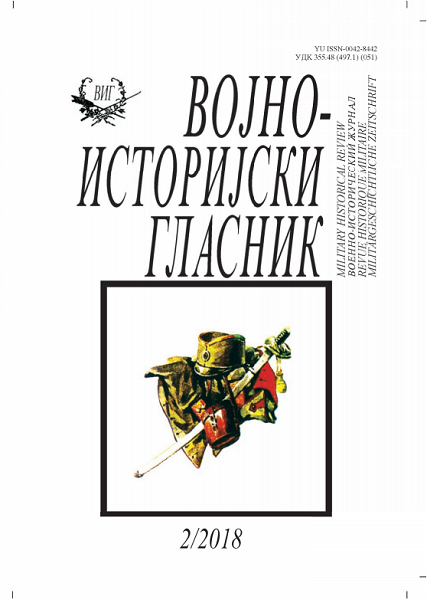ПОГЛЕД КА ДРУГОМЕ: ЈУГОСЛОВЕНСКА ИЗБЕГЛИЧКА ВЛАДА ОЧИМА ЧЕХОСЛОВАЧКИХ ПОЛИТИЧАРА И ДИПЛОМАТА У ЕМИГРАЦИЈИ У ТОКУ ДРУГОГ СВЕТСКОГ РАТА
THE LOOK TO ANOTHER SIDE: ATTITUDE OF THE CZECHOSLOVAK POLITICIANS AND DIPLOMATS TO THE YUGOSLAV GOVERNMENT IN EXILE DURING THE SECOND WORLD WAR
Author(s): Milan SoviljSubject(s): Recent History (1900 till today)
Published by: Institut za strategijska istraživanja
Keywords: Yugoslavia; Czechoslovakia; Germany; Great Britain; The Second World War; Governments in exile; Diplomatic Relations
Summary/Abstract: The outbreak of the Second World War and the gradual occupation of the European continent by the German army led to, among other things, the establishment of exile bodies of the many occupied countries, especially in Great Britain. Together with other exile governments in Great Britain were very active too prominent Czechoslovak and Yugoslav exile politicians. The internal problems of both exile governments had greatly affected their views on the future of both countries. Although the opinions of prominent Czechoslovak exile representatives on postwar Czechoslovakia differed, especially regarding the CzechSlovak question, their activity seemed more united and organized compared to that of Yugoslav politicians. Yugoslav exile politicians were almost constantly burdened by numerous problems, the roots of which lay in the interwar period: in the disputes among Serbian, Croatian and partially also Slovenian politicians. In addition to this, there was the very difficult political and war situation in Yugoslavia, where the war was not only against the occupiers, the German and Italian armies; it was also a civil war between the resistance movements and the collaborators. Given all this, it seemed that Yugoslav exile politicians, who were of different nationalities and especially of different political views, were not able to create a unified concept. The attempts of both governments to cooperate in emigration and their efforts to build solid foundations for the future of Czechoslovakia and Yugoslavia did not always have a positive impact on the relations between both exile governments in Great Britain. Although prominent Czechoslovak politicians and diplomats in exile didn’t stress always their attitude toward the Yugoslav political exile, their view were mostly reserved. Such attitude was connected with the views of the Czechoslovak president in exile Edvard Beneš toward Yugoslavia in period immediately before Munich Agreement in September 1938. From that period Beneš had very negative attitude toward the Prime Minister Milan Stojadinović and his government, because he saw in the passive Yugoslav international politic of that time, one of the reasons for losing the Yugoslav support in very sensitive moment for future of the Czechoslovak state. Such negative Beneš’s attitude toward the Yugoslav government lasted in the next few years including the period of common exile in Great Britain.
Journal: Vojnoistorijski glasnik
- Issue Year: 2018
- Issue No: 2
- Page Range: 110-141
- Page Count: 32
- Language: English

